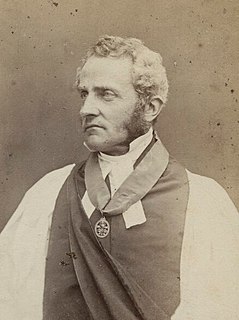A Quote by William Osler
A library represents the mind of its collector, his fancies and foibles, his strength and weakness, his prejudices and preferences. Particularly is this the case if, to the character of a collector, he adds - or tries to add - the qualities of a student who wishes to know the books and the lives of the men who wrote them. The friendships of his life, the phases of his growth, the vagaries of his mind, all are represented.
Related Quotes
If a man withdraws his mind from the love of beauty, and applies it as sincerely to the love of the virtuous; if, in serving his parents, he can exert his utmost strength; if, in serving his prince, he can devote his life; if in his intercourse with his friends, his words are sincere - although men say that he has not learned, I will certainly say that he has.
A life in Christ is a life of restfulness. There may be no ecstasy of feeling, but there should be an abiding peaceful trust. Your hope is not in yourself; it is in Christ. Your weakness is united to His strength, your ignorance to His wisdom, your frailty to His enduring might....Let the mind dwell upon His love, upon the beauty, the perfection of His character.
Man in his raw, natural state as he comes from the womb is morally and spiritually corrupt in disposition and character. Every part of his being-his mind, his will, his emotions, his affections, his conscience, his body-has been affected by sin (this is what is meant by the doctrine of total depravity)
In the true, original, catholic, evangelical religion of Jesus Christ, and in this alone, all the divided religions of Christendom find their union, their repose, their support. Find out His mind, His character, His will; and in His greatness we shall rise above our littleness; in His strength we shall lose our weakness; in His peace we shall forget our discord.
To be acceptable is for one to ignore his weakness while knowing his strength, to cover the scar even though it's always there, however, to be impossible is for one to see his weakness as, not an adversary, but the cherry on top of his strength, to rearrange the scar so that it compliments his features.
When Heaven is about to confer a great office on a man, it first exercises his mind with suffering, and his sinews and bones with toil ; it exposes his body to hunger, and subjects him to extreme poverty ; it confounds his undertakings. By all these methods it stimulates his mind, hardens his nature, and supplies his incompetencies.
The power of magic has no known limits. A person knows, in a fair way, his own physical capacities, the weight of the blows he can deal, the furthest range of his arrows, the strength of his voice, the speed and endurance of his running; but the reaches of his mind are indefinite and, to his feeling, infinite.
The master in the art of living makes little distinction between his work and his play, his labor and his leisure, his mind and his body, his information and his recreation, his love and his religion. He hardly knows which is which. He simply pursues his vision of excellence at whatever he does, leaving others to decide whether he is working or playing. To him he's always doing both.
Depending on the year or the therapist he was seeing, he'd learned to ascribe just about every facet of his character as a psychological reaction to his parents' fighting: his laziness, his overachieving, his tendency to isolate, his tendency to seduce, his hypochondria, his sense of invulnerability, his self-loathing, his narcissism.




































